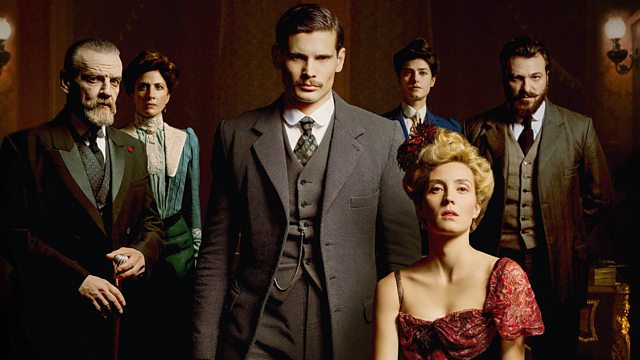Paris Police 1900, S1: E6
The first act of Episode 106 of Paris Police 1900 is dark. Like really dark, both figurately and literally. Dark like the producers spent their entire lighting budget on the first five episodes of the series dark. As dark as the far side of the moon. Dark like the burnt toast your mother incredulously told you was fine to eat as long as you scraped off that first layer of carbon. (I’ll be here all week!) (Bad) jokes aside, Ken Morefield talked about how much grittier European television seems to be than American media in his review of Episode 105. It’s something he’s been focusing on from the beginning of the series and the opening scene of 106 provides more evidence for his assertion.
The darkness of Episode 106’s opening scenes portends a filth about early 20th-century Paris that I think eludes the general perception of the city but which the series bravely tries to explore. Life in a city like Paris comes with cultural, moral, and literal filth that seems to be inevitable when you cram enough human beings together in a relatively tight space. The series has made the espionage and deceit that have been pervasive throughout the run feel inevitable. If it wasn’t Inspector Puybaraud it would be someone else. The exploitation of Parisian women for sex makes you itch, but then you realize that sex has been used this way for millennia in societies across the world. We can’t even enjoy the idea of a good steak because the meat processing plants in Paris Police 1900 look absolutely disgusting.
Watching this series, it’s hard to understand how Paris came to be known as the “City of Light.” Full disclosure: Paris became known as the City of Light figuratively because of the culture that it contributed to the Age of Enlightenment and more literally because it was one of the first cities in the world to use street lighting on a grand scale. (I’m sorry for pontificating, but the historian in me had to get that out.) The point being that there is an incongruity between romanticizing metropolises like Paris and the reality experienced by the people that actually live in them. The series is doing a good job of addressing that.
The first act of Episode 106 builds upon the violence, corruption, and antisemitism that buttresses the series with a starkness that feels amplified in this episode. Fiersi, who has really been endearing himself to viewers for weeks with his heart of gold, finds himself in another violent predicament thanks to the nefarious machinations of Superintendent Puybaraud. Meg, who wanted no part of this antisemitic foolishness in the first place, now finds in herself on the proverbial chopping block. Moreover, Mademoiselle Lépine now exists as a harpy hell-bent on revenge. Watching her beat the face of off Countess de Vaudois, despite the fact that the countess really earned the comeuppance, feels like pure bullying. It’s a very conflicting scene that reiterates the darkness of the episode.
Ken’s review of Episode 105 seems to be begging for the light that Paris is known for, and I think this episode eventually delivers a taste of it. The lighting in the second and third acts of the episode is distinctively brighter, and I think that is important to notice. It’s important to notice because the gravity of the episode’s material doesn’t change, but the tone does. Optimism that good will eventually prevail seems to be subtly taking over the story. Antione Jouin finally steps up into his role as the ostensible hero. Female characters like Meg Steinheil, Mme. Lépine, and Jeanne Chauvin stand up to the patriarchy of their society in inspirational ways, and Le préfet Lépine seems primed to relieve Puybaraud of his (clandestine and nefarious) duties. It all feels so bright.
Paris Police 1900 is a great show. The storyline is compelling because it connects us to a historical event that we should all be curious about. Additionally, the cast is perfect. All the players deliver a performance that fits so well with what they’re asked to bring to the project. The weight that Évelyne Brochu carries throughout the series comes to mind. The survival spirit that she portrays Meg Steinheil with is inspirational. At the beginning of the episode, she remarks, “I like to think of myself as a courtesan, not a lady of the night. I chose my lovers.” Don’t you dare call her a whore! At the end of the episode, she defiantly, but gracefully tells an absolutely detestable Puybaraud, “I resign.” It’s a powerful line full of optimistic potential. I can’t wait to see how she uses that sense of liberation in episode 107!

